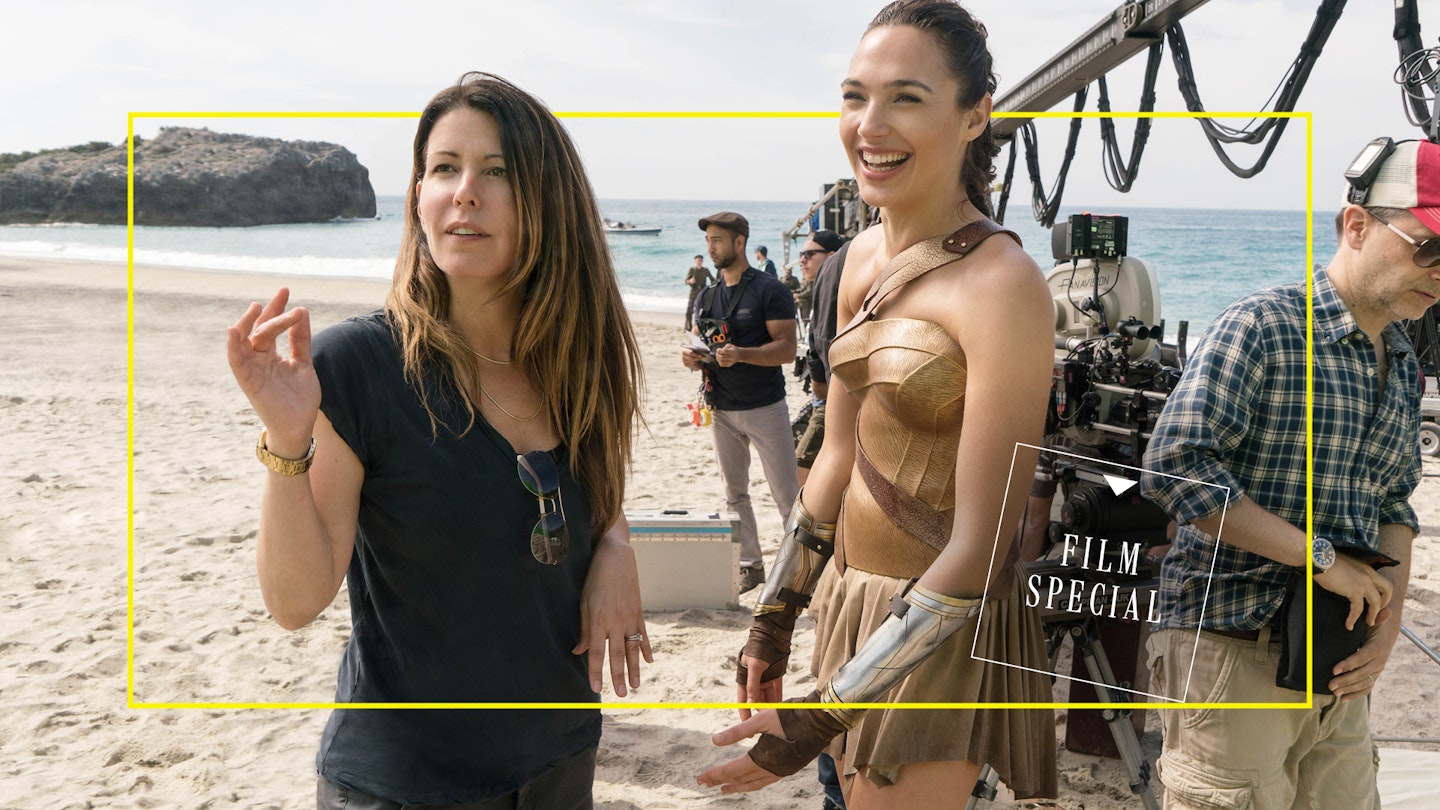When the #10YearChallenge went viral on social media last month, most people used it to show just how much their lives had altered in the space of a decade. Yet apply the same trick to Hollywood and you’ll find depressingly little has changed.
According to recent research from San Diego State University, fewer women directed Hollywood’s top films in 2018 than two decades ago (in 1998, female directors made up 9%, while in 2018 it moved down to 8%). Meanwhile, research carried out by the British Film Institute found a similar story in the UK, where the number of films directed by women today is the same as it was 100 years ago. So it’s unsurprising only one female director has won Best Director in the Academy Awards’ 91-year history – Kathryn Bigelow for The Hurt Locker – and in its entire history, only have have ever even been nominated. Not one has been a woman of colour.
‘The unbearable truth is that women have been looking at film through the male gaze 93% of the time for the last 100 years,’ says Amanda Nevill, chief executive of the BFI. ‘Change is far too slow to happen. You almost feel violent about the results that come out in awards season.’
One reason is said to be the reluctance of film studios to take a ‘risk’ by trusting women to direct big budget titles. And yet, economically speaking, this makes little sense: evidence has repeatedly shown that films made by women do better at the box office than those made by men. Take Patty Jenkins’ Wonder Woman in 2017, at one point the highest-earning superhero film of all time. The picture in screenwriting and production is more positive (there was a 2% rise in women working across the industry). Yet women still struggle to get female-led projects off the ground. A year after Hollywood’s most prominent women wore black on the red carpet to mark the dawn of a new, more equal era in the film industry, progress has been slow.
‘#MeToo was about colossal sexual misconduct in the workplace,’ says Josie Rourke, director of the recent hit movie Mary Queen Of Scots – her first feature film. ‘There’s a difference between feeling safe in the workplace and feeling equal in the workplace.’ To make that happen, she says, is ‘mind-numbingly simple: just hire more women! I don’t see how it’s any more difficult than that.’ She points to her own appointment as the first female artistic director at the Donmar Warehouse theatre in 2012, which opened the door for more women to follow in similar roles.
Indeed, putting women in positions of power only elevates female voices. The San Diego State University study found that on films with female directors, women accounted for 64% of writers – that fell to 9% on films directed by men. That said, Time’s Up has enabled women to demand better representation on the projects they work on. ‘I feel there’s a confidence that there wasn’t 10 years ago,’ says Rachel De-Lahay, an award-winning playwright and screenwriter who has written for Channel 4, Amazon Prime and Netflix. ‘A few years ago, I’d be bamboozled by the narrative that sexism was all in our heads. Now, I feel clear that the problem is very real. We have the confidence to demand female writers, or directors of colour, on the projects we’re working on.’
In the decade that she’s been writing for the screen, Rachel says it’s been impossible not to conclude that men get ahead faster. ‘When people say it’s about talent, I call bullshit. If I was the head of a film studio and three people came to me with a story and only one reminded me of my own life, maybe I’d go with that. Until the people in charge change, the stories won’t change. We have to think wider and broader and be more open.’
The bit that no one wants to hear, perhaps, is that there is only so much women can do about all of this – men also need to play their part. Rachel says backing by the five-time BAFTA-award-winningscreenwriter Jack Thorne, with whom she co-wrote last year’s Channel 4 drama Kiri when she was an unknown writer, was a pivotal moment in her career. Likewise, Josie says that support from top director Sam Mendes has been key to her success. ‘Jack could have picked a man, or someone really experienced,’ says Rachel. ‘But he didn’t. Instead, he picked a new writer, a woman of colour, who hadn’t had a TV credit. That’s what will help create change. We need to stop expecting women to do it all.’
Still, Deborah Davis, screenwriter of The Favourite – and one of only two female screenwriters to be nominated at this year’s Oscars – is optimistic. ‘The Favourite__ was about women controlling the agenda and about women in power,’ she says. ‘It’s a story that I had never seen before, and I was excited by it. I can see the appetite for female-dominated stories is huge, it’s on an upward curve.’ And long may it continue.
